Luis A. Barboza
Assessing dengue fever risk in Costa Rica by using climate variables and machine learning techniques
Mar 23, 2022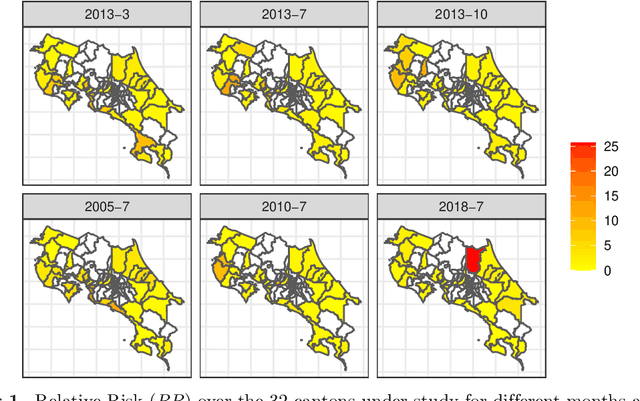
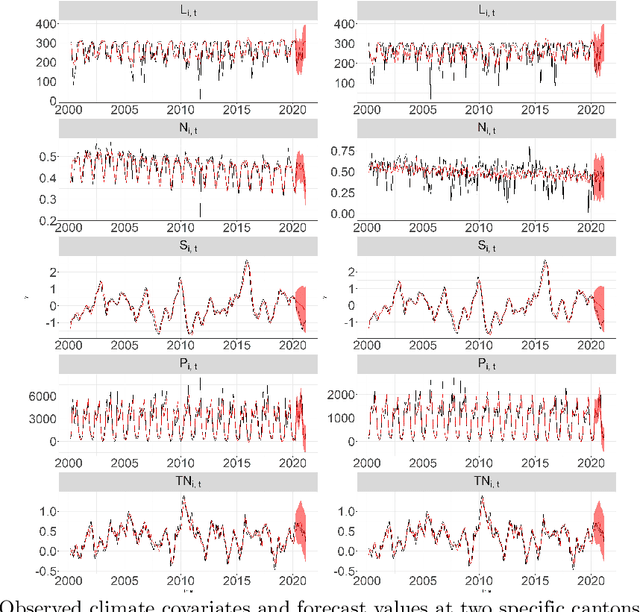
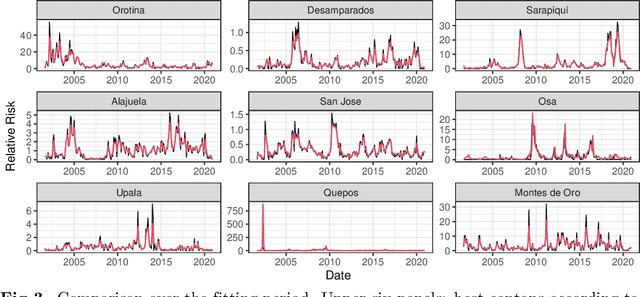
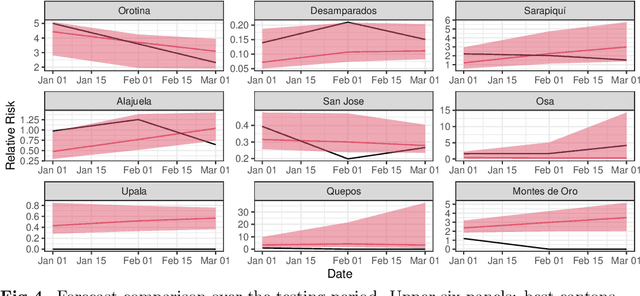
Abstract:Dengue fever is a vector-borne disease mostly endemic to tropical and subtropical countries that affect millions every year and is considered a significant burden for public health. Its geographic distribution makes it highly sensitive to climate conditions. Here, we explore the effect of climate variables using the Generalized Additive Model for location, scale, and shape (GAMLSS) and Random Forest (RF) machine learning algorithms. Using the reported number of dengue cases, we obtained reliable predictions. The uncertainty of the predictions was also measured. These predictions will serve as input to health officials to further improve and optimize the allocation of resources prior to dengue outbreaks.
Climate-driven statistical models as effective predictors of local dengue incidence in Costa Rica: A Generalized Additive Model and Random Forest approach
Jul 30, 2019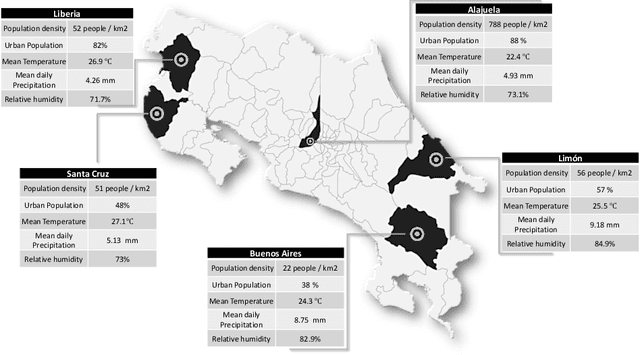

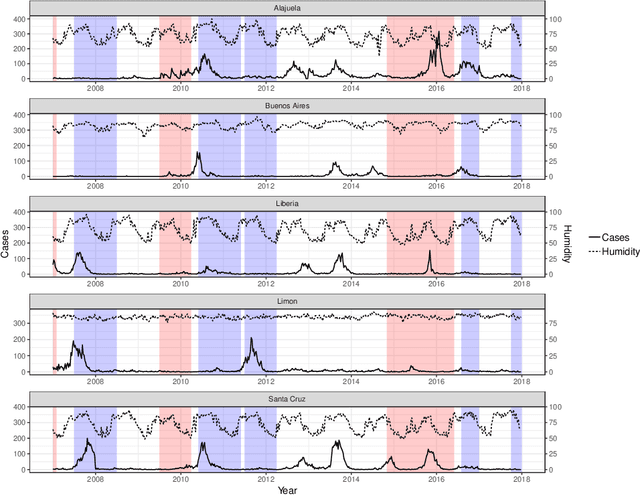
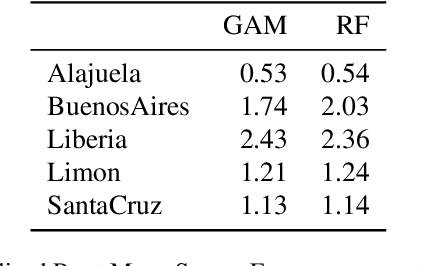
Abstract:Climate has been an important factor in shaping the distribution and incidence of dengue cases in tropical and subtropical countries. In Costa Rica, a tropical country with distinctive micro-climates, dengue has been endemic since its introduction in 1993, inflicting substantial economic, social, and public health repercussions. Using the number of dengue reported cases and climate data from 2007-2017, we fitted a prediction model applying a Generalized Additive Model (GAM) and Random Forest (RF) approach, which allowed us to retrospectively predict dengue occurrence in five climatological diverse municipalities around the country.
 Add to Chrome
Add to Chrome Add to Firefox
Add to Firefox Add to Edge
Add to Edge